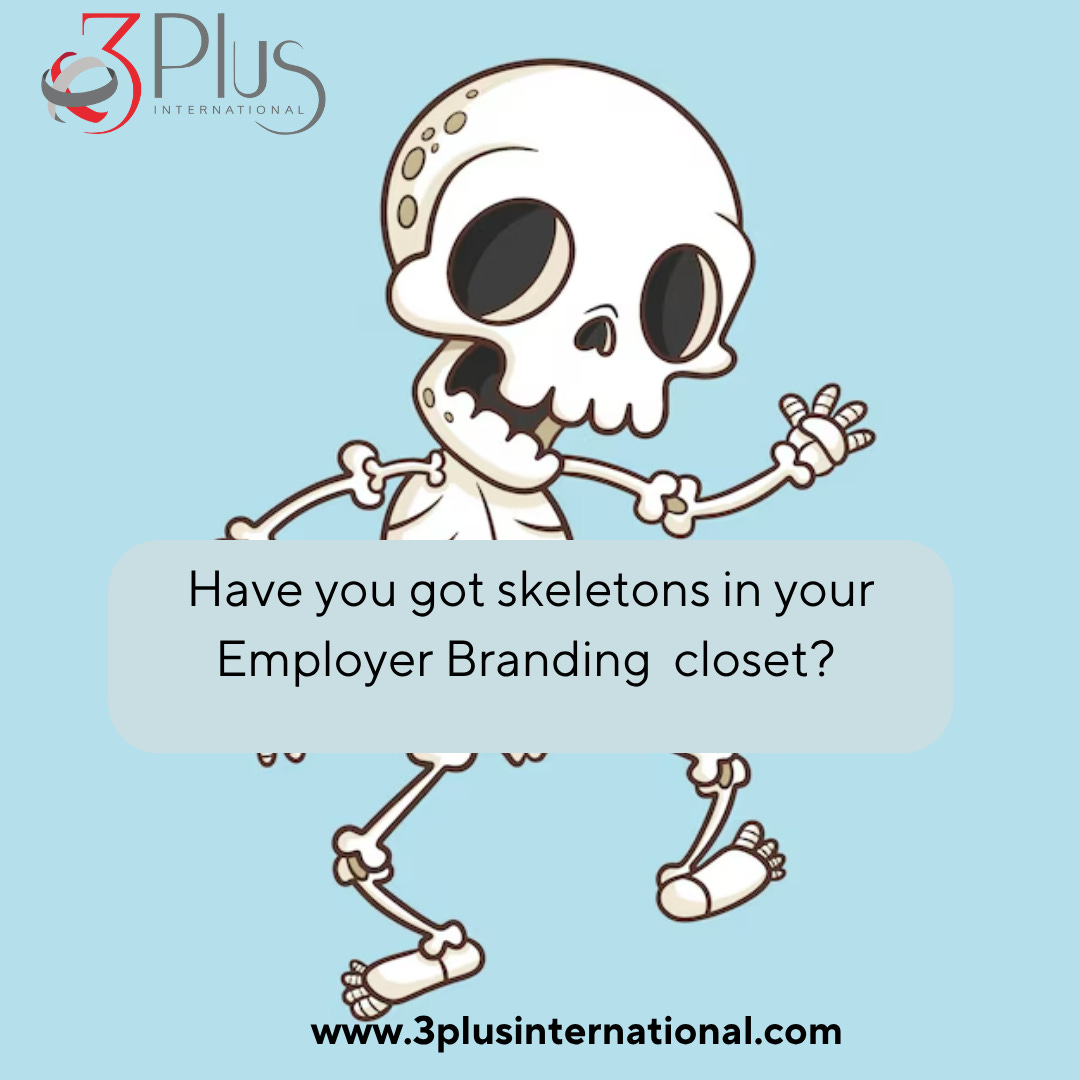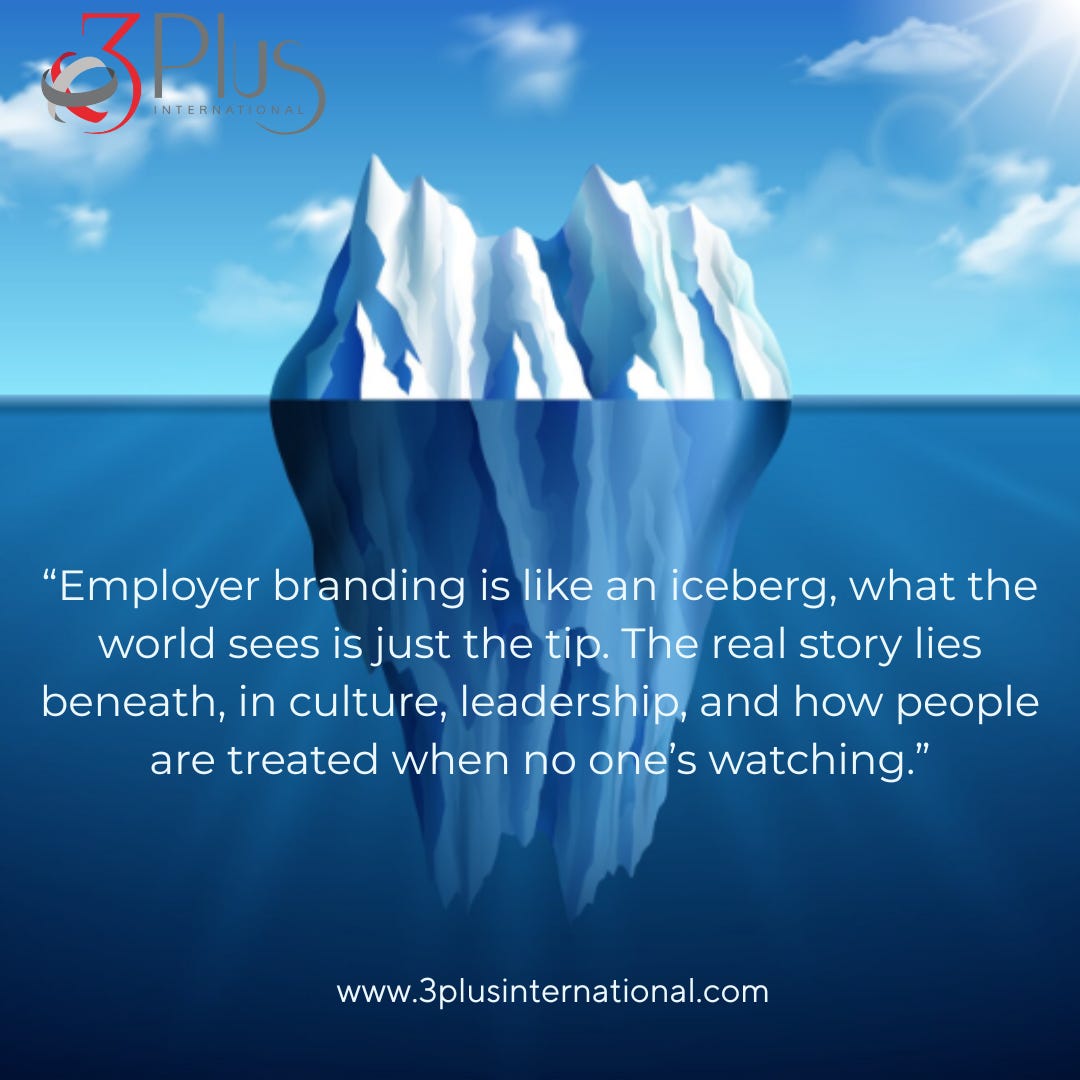Employer Branding in the Age of AI
How the internet keeps receipts. Organisations can hide - but not forever.
If AI scrapes the internet for the truth about your company, what story will it find?
In today’s AI-powered world, your employer brand is no longer defined by what’s on your careers page, web site or company LinkedIn page. It’s being shaped in real time, cross Reddit threads, TikTok rants, Instagram Stories, Glassdoor reviews, and even anonymous whistle blowing sites.
And AI is watching it all.
Modern AI tools can scan and synthesise thousands of data points across public platforms. Candidates, competitors, and journalists are already using these tools to uncover what’s really being said about your organisation. The good, the bad, and the reputation-destroying ugly are now just one prompt away from the surface.
Recently I ran some searches asking for evaluations of some organisations’ activities in the areas of DEI, gender balance, and psychosocial and psychological safety, on two AI platforms. Within thirty seconds from each one, I had the full-scoop, scraping information from every source, including the usual-old school sources, but also tapping into alternative data points that it would have taken me hours to dig into.
Both platforms were aligned. I saw very clearly the disconnect between the public image of these organisations via the official branding messaging, and the dusty skeletons lurking deep in their employer branding closets.
A glossy careers page is just the visible tip of an employer brand. Beneath the waterline are the values, behaviours, and employee experiences that determine whether your brand floats or sinks.
AI + Social Listening = Total Transparency
This is no longer about LinkedIn or Glassdoor, or traditional sources of reference. Reddit, TikTok, and other online forums are filled with viral “day in the life” videos, employee exposés, and HR horror stories. Instagram hosts giving polished but revealing content from former interns, burnt-out middle managers, and frustrated front line workers. Blind, X (formerly Twitter), and niche forums all serve as digital diaries, and AI is reading them with perfect recall. In nano-seconds.
These platforms used to be noisy, fragmented, and easy to overlook. But today’s generative AI can quickly join the dots across timelines, analyse tone and trends, pulling together all the commonalities. The result is a potentially disturbingly accurate portrait of your internal culture, leadership, and how people really feel about working for you.
Why this is a worry
An outdated Glassdoor review or a single viral TikTok calling out toxic management might seem minor. But when AI aggregates it with a Reddit thread, an Instagram reel, Facebook chats and several low Glassdoor ratings, it becomes a narrative. And that narrative could:
Turn away top talent before they even apply
Give competitors an edge in recruitment and business deals
Draw media scrutiny, especially if journalists use AI tools for due diligence
Undermine the trust of current employees who feel seen,but not heard
So, What Can You Do?
You can’t erase the internet. But you can manage your employer brand in the AI age with a proactive, transparent, and human approach.
1. Audit your digital footprint
Use your own AI or monitoring tools to regularly scan platforms like Reddit, Blind, Glassdoor, and Twitter. Don’t wait for a crisis, understand the ongoing conversation around your brand. Tools like Brandwatch, Sprout Social, and even Reddit’s own search features can help track sentiment and identify emerging issues.
2. Respond without defensiveness
If an employee’s TikTok goes viral for the wrong reasons, resist the urge to suppress or deny. Instead, acknowledge the issue, clarify where needed, and outline what you’re doing to improve. The same goes for Reddit or Blind threads, while direct engagement may be risky, indirect but authentic communication on LinkedIn or your careers blog can help reclaim the story. Authentic, transparent communication goes a long way.
3. Fix the root, not just the optics
Reputation is a reflection of reality. If your culture has systemic issues, they will leak. Investing in your people, through better management, inclusion, feedback loops, and transparency, will have the greatest long-term impact on what’s being said and how it’s perceived.
4. Encourage employee advocacy
Encourage employee advocacy from your employees to share their positive experiences online. Real stories from real people can help counterbalance negative content organically. Employees can be your best brand ambassadors, but take care not to pressurise them as this too will end up a Sub-Reddit thread.
4. Build an AI-aware reputation strategy
Add AI to your risk register. Set up dashboards that don’t just track mentions, but understand sentiment trends, viral risks, and which platforms are gaining traction. Have a crisis playbook ready for digital-first reputation hits.
Create a protocol for quickly assessing, escalating, and responding to online reputation risks. This should involve HR, legal, comms, and leadership.
5. Focus on transparency
AI is making it harder for companies to hide behind polished employer branding. But this shift can be a gift in disguise. It encourages organisations to walk the talk, fix what's broken, and build cultures that can stand up to scrutiny.
In the age of intelligent search and automated insight, the best defence is authenticity. An even better strategy is to focus on human centred leadership, based on a deep foundation of trust, inclusion, and integrity.
Check out the 3Plus Workshops focused on Trauma Reflective Practices





